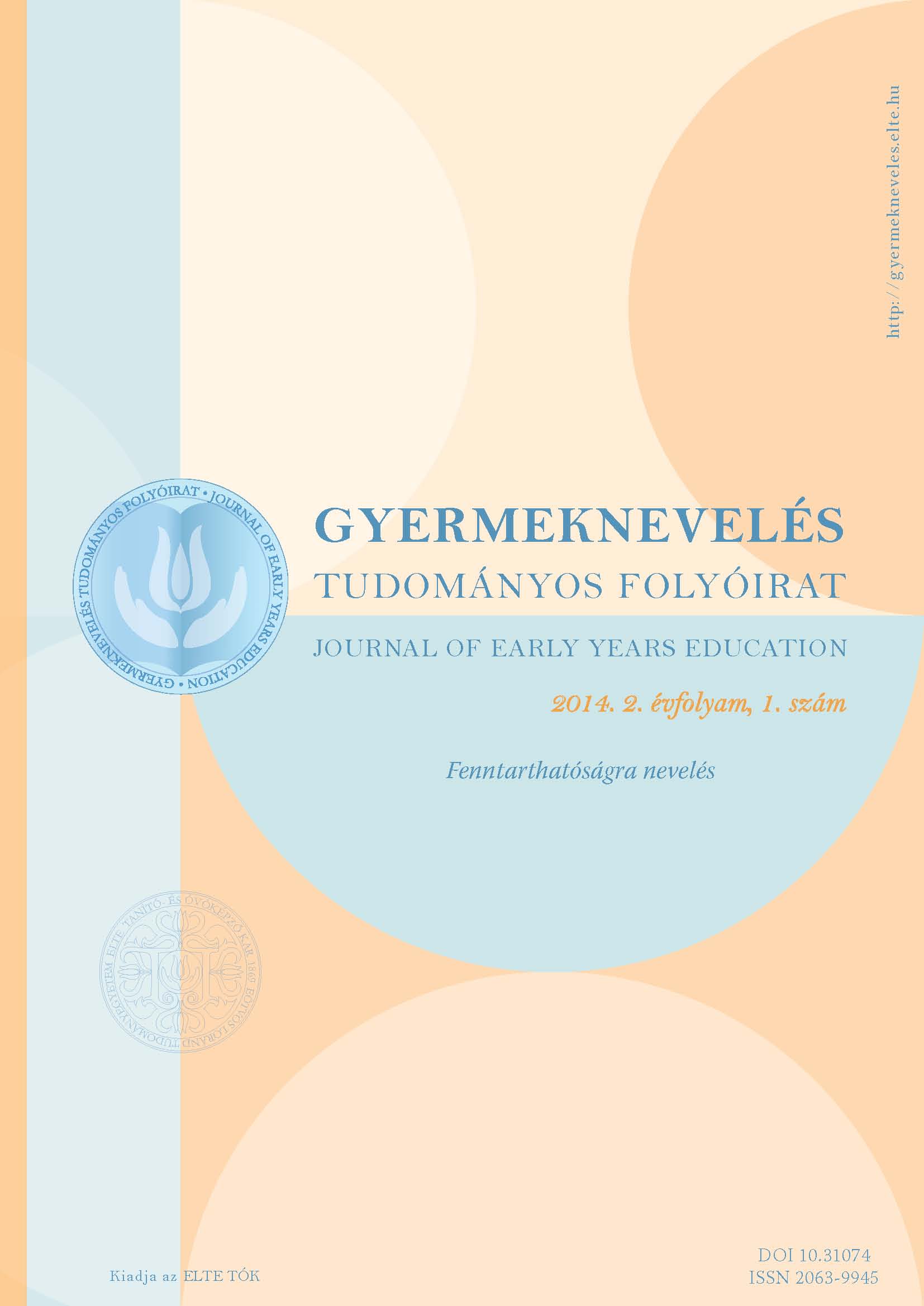Worldrangers – a pedagogical approach to a sustainable development
DOI:
https://doi.org/10.31074/gyntf.2014.1.3.8Absztrakt
Our consumer-oriented lifestyle necessarily leads to a steadily increasing utilisation of nature and its resources. A central element of environmental
education focuses, therefore, on a promotion of sustainable lifestyles within our existing economic growth structures. The educational programme Worldrangers includes three intentions: (i) attaching an ethic to sustainability thinking, (ii) trying to counter the increasing trend towards the destruction of nature and consumption of natural resources as well as (iii) challenging our consumeroriented lifestyles. Specific consideration is given to potential synergistic effects between an original encounter and cognitive knowledge transfer. The one week programme was introduced and completed in an ecologically oriented residential field centre. A substantial ceiling (respectively bottom) effect concerning the attitudes of the participating pupils was observed for the pre-test scores. Therefore, the shifts in attitude scores were low but occurred into the desired direction. The lesson elements which focused on hands-on activities and real life situations lead to significantly increased knowledge. An additional study, that was conducted five years after the intervention, indicated a very positive long-term effect of the programme Worldrangers.
Letöltések
##submission.downloads##
Megjelent
Hogyan kell idézni
Folyóiratszám
Rovat
License
Copyright (c) 2014 Szerző

This work is licensed under a Creative Commons Attribution-NonCommercial-ShareAlike 4.0 International License.

